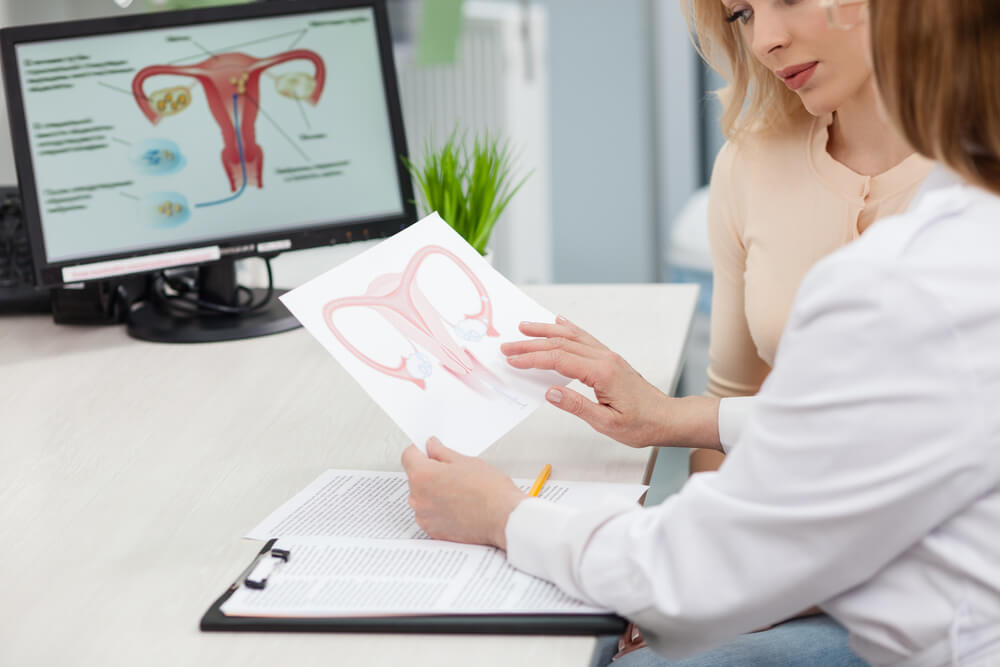PCS or pelvic congestion syndrome is a medical condition described as chronic occurring in the pelvic region when varicose or enlarged veins start forming below the abdomen. This condition causes chronic, dull pains, and almost in 30% of cases where women are experiencing pain in their pelvis, the doctors diagnose the PCS syndrome.
When choosing a gynecologist in Bradenton, Florida, be mindful of the range of services they offer because it is of the utmost importance for you to get the best possible support and medical attention regarding your reproductive health.
So What Does the Pelvic Congestion Syndrome Look Like?
As you might know, veins are blood vessels in the body responsible for collecting blood poor with oxygen and returning it to the heart. Veins can be found everywhere in the body, including the low abdominal region. For some women, the veins in their pelvic area stop working correctly, and the blood starts to accumulate in the veins.
After blood builds up in a particular area, the veins become large and change their form due to the extensive amount of blood within. What happens is that the backward flow of blood creates a blood pool in the pelvic area, which leads to the appearance of a specific type of veins called varicose veins, which tend to be painful and which are a sign that you might be suffering from a pelvic congestion syndrome.
Causes
When it comes to the causes of the PCS syndrome, scientists and doctors are still trying to pinpoint the exact reasons why PCS occurs. Some of the reasons which can be found in today’s literature are:
- Previous pregnancy where the veins have already been enlarged due to the pregnancy, in support of the increase in blood flow. There is also a possibility that this can cause permanently enlarged veins, i.e., pelvic varicose veins.
- Hormones can be the cause of PCS as well because estrogen, amongst other hormones, makes the veins dilate and weakens the blood vessel walls.

What Are the PCS Symptoms and Who Can Suffer From It?
All women in their birth-giving age can suffer from pelvic varicose veins and PCS generally. The fact that you have already been pregnant and given birth and that someone in your family already suffers from it puts you at higher risk. Also, experts suspect that having a retroverted uterus, as well as polycystic ovaries, and a heavier lower body physique can put a person in a risky category.
It has been proven through different studies that the potential of getting PCS during menopause is smaller because the levels of estrogen in women drop after a certain age.
As far as the symptoms of pelvic congestion syndrome go, here are some of the most frequent ones:
- Dull pain lasting more than six months
- Sharp pain
- Pain on the inside, on the left part
- Pain worsens during the evening time
- More pain after changing positions
- Additional pain during or after sexual intercourse (deep dyspareunia)
- Intensified pain after standing or walking
- Pain during and before menstrual periods
- Abnormal bleeding during cycles
- Backache
- Urges for urination
- Augmented veins on the backside, thighs, and the vulva
- Depression
- Exhaustion
- Strange vaginal discharge
- Irritable bowel (diarrhea and periods of constipation)
- Tenderness in the abdomen
- Pain in the hips
Diagnostics
It is essential to mention that it is a complicated task to diagnose PCS because pain in the pelvis is very common, and many different factors can cause it, such as ovarian and uterus issues, urinary tract problems, gastrointestinal system, issues with muscles, and bones, chronic pain and mental health issues.
To be able to diagnose pelvic congestion syndrome, doctors frequently have to carry out multiple procedures to eliminate any other possible conditions before diagnosing PCS. Some of the procedures which are used are pelvic ultrasound, laparoscopy, CT and MRI scan, and a venogram (using x-rays to check the pelvic veins).
The pelvic ultrasound is usually the most preferred option because it is possible to detect the varicose veins and also monitor the blood flow. Some other tests that are done are the urine test (to check the urinary system), a blood test (STIs and anemia detection, etc.), Doppler ultrasound (blood flow check), and alike.
Pelvic Congestion Syndrome Treatment
As the causes for PCS are not entirely defined, the pelvic congestion syndrome treatment options are primarily aimed at relieving symptoms and reducing pains because there is no definite cure for the condition. Your chosen healthcare provider will create a treatment plan for you based on the symptoms you are suffering from.
To relieve pain and help the patients are much as possible, specific options have been successfully explored and very efficient in the past, such as:
- Nonsteroidal anti-inflammatory drugs
- Chronic pain medications
- Gonadotropin-releasing hormone drugs (to stop the function of the ovaries)
- Hormone progestin drugs (to relieve pain)
- Surgical methods to block off enlarged veins
- Surgical removal of damaged veins
- Surgical removal of uterus or ovaries
The most successful PCS treatment currently is pelvic vein embolization or PVE. During this procedure, the medical professionals block off varicose veins suspected to be causing the pain. The success rate has been high, and there is a substantial improvement in symptoms for people who decided to undergo this procedure.

Anything Else?
Below we are bringing you some additional information that you might find helpful when it comes to battling a condition whose main symptom is most often immense pain:
- Pelvic congestion most often is not a medical urgency, but you should plan to consult your chosen healthcare provider.
- This condition does not affect your life expectancy, but it can affect the quality of your life.
- Suffering from chronic pain, extensive pain during menstrual cycles, and sexual intercourse might lead to depression, anxiety, and an overall decrease in physical activities.
- PCS can vary in symptoms, and it is very individual for each patient, but it is essential to be mindful of the symptoms and ask for medical support on time.
- A timely intervention might spare you a lot of additional pain and discomfort, so try and seek as much support and help as you can from the medical team you selected to care for your reproductive health.
We Are at Your Disposal!
Suffering through enormous amounts of pain due to issues with your pelvic health can be exhausting and stressful. Our professionals are continuously being trained and additionally educated on women’s reproductive health to help our patients as much as possible in struggling with conditions such as pelvic congestion syndrome. Women’s Care of Bradenton has created a safe place for patients to schedule consultations and procedures, and we have an expert team of doctors and nurses who will support you through the process of healing your pelvic health. Contact us every weekday, and schedule a consultation as soon as you experience symptoms. We are here to help!


